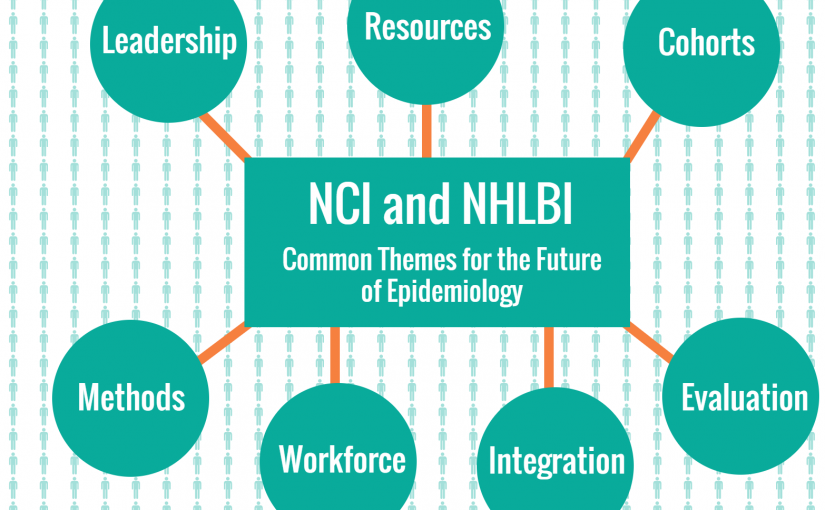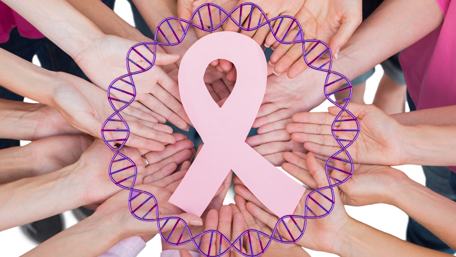Genomics and Precision Health Blog – Archive Posts
Recommendations and Reality: What Personal Stories of Hereditary Cancer Can Tell Us

In public health and clinical medicine, recommendations for interventions are generally based on the evidence supporting improved health outcomes. Studies that inform these recommendations often focus on the evidence for benefits, especially when those benefits include lives saved. The harms that affect quality of life are more challenging to quantify and sometimes go unmeasured. Recommendations Read More >
Posted on by 1 CommentPrecision Medicine vs. Public Health: a False Dichotomy?

The recent focus on precision medicine has attracted criticism from the public health community that firmly believes that health is determined by far more than health care, and that more sophisticated medical technologies may not adequately address important determinants of population health. There is no argument that a focus on the wider environmental, structural and Read More >
Posted on byInfectious Diseases: Precision Medicine for Public Health

Until now, most medical treatments have been designed for the “average patient.” As a result of this “one-size-fits-all” approach, treatments can be very successful for some patients but not for others. Precision Medicine, on the other hand, is an innovative approach that takes into account individual differences in people’s genes, environments, and lifestyles. The Precision Read More >
Posted on byPrecision Medicine, Implementation Science and Public Health: How Do We Scale Up From 1 Million to 300 Million?

Planning for the 2015 Presidential Precision Medicine Initiative is in full swing. After the initial announcement in January 2015, several workshops were held to help in design and execution of the longitudinal cohort study of 1 million persons. The workshops covered important topics including a Building a Precision Medicine Research Cohort, Scientific Opportunities, Digital Health Data, Read More >
Posted on by 1 CommentThe Future of Epidemiology in the Age of Precision Medicine: Cancer, Cardiovascular Disease, and Beyond

We live in the era of “Big Data.” Evaluating the health impact of large scale biological, social, and environmental data is an emerging challenge. Epidemiology, the study of the distribution and determinants of human disease in populations, is a foundational science of public health and provides important insights for medical practice and disease prevention. Epidemiology has Read More >
Posted on by 1 CommentPrecision Medicine and Public Health: Improving Health Now While Generating New Knowledge for the Future

In a previous post, I commented on the importance of a public health perspective to ensure the success of the proposed precision medicine large national research cohort. Here I offer additional thoughts on the need to balance short term public health gains with long term knowledge generation from this effort. Read More >
Posted on byThe Ultimate Selfie

Now within reach, our personal genomic sequence offers an incredible reflection of who we are, and great promise to improve human health, but there are serious concerns about embracing it too quickly. Empowered Consumers in the Era of Me If social media is any indication, we, like Narcissus of ancient myth, are surely self-obsessed creatures. Read More >
Posted on by 3 CommentsUsing Genomics in Precision Prevention of Breast Cancer

Breast cancer is the most common cancer in women in the United States. It is estimated that 3%-5% of breast cancer cases are hereditary, most often involving mutations in BRCA1 and BRCA2 genes. Such mutations confer high lifetime risk of breast and ovarian cancer. The United States Preventive Services Task Force has issued specific recommendations Read More >
Posted on byWhen a Country Cannot be a Cohort: Challenges of Implementing a Large Precision Medicine Cohort Study in the United States

The recently proposed US precision medicine initiative promises a new era of healthcare with targeted disease treatment and prevention. It prominently features a longitudinal study of a national cohort of a million or more people to customize interventions based on a person’s genetics and other factors. The long term goal of this study is to Read More >
Posted on byPrecision Public Health and Precision Medicine: Two Peas in a Pod

The 2015 US Precision Medicine Initiative promises a new era of biomedical research and its application in health care. The initiative is enabled by rapid advances in biomedical sciences, including genomics and bioinformatics, as well as the progress in communication, information technologies and data science. Targeted cancer therapies are a near term goal for Read More >
Posted on by

